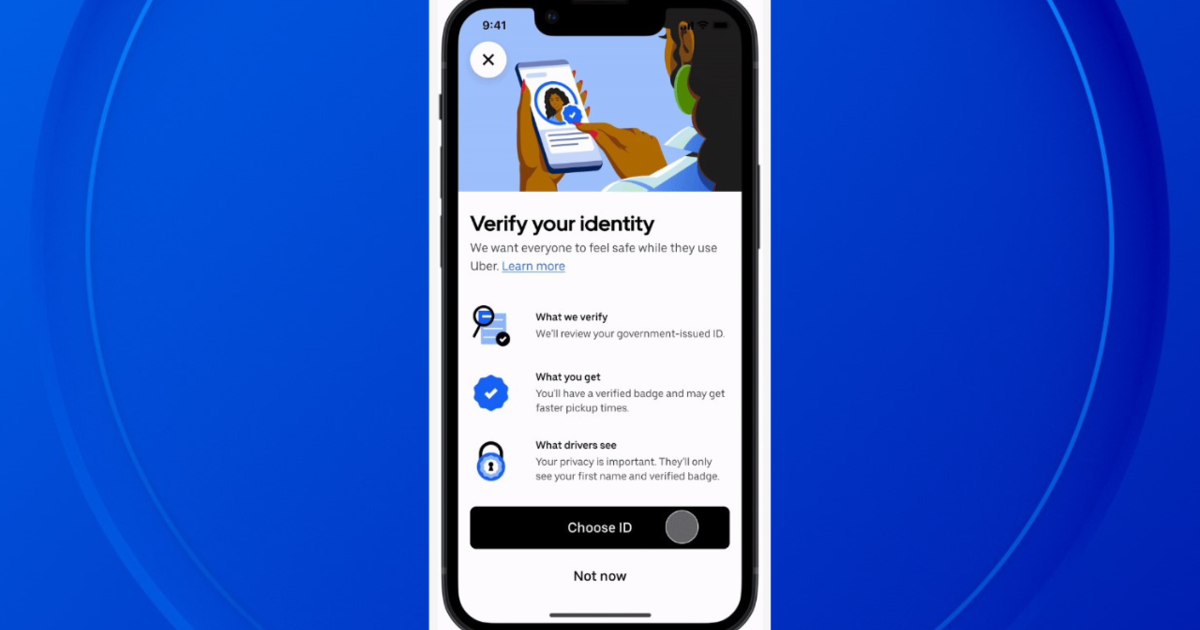Matt's Favorites: Sign Up For Innovation Event, High-Tech New Mustang, Mulally May Stay Put, And Much More
So what's the latest on this suddenly wintry Friday? Got your top tech headlines, right here...
* First, here are links to the Tech Report home page and Tech Report Page Two, where you will find much worthwhile news.
* Also, join WWJ Technology Editor Matt Roush and panelists gathered by the Southfield accounting and business advisory firm Plante Moran for a webinar on a novel idea for getting innovation into your organization — buying it. The event takes place Thursday, Dec. 12 from 2 to 3 p.m. Eastern time online. The webinar builds off the results of Plante Moran's just-released 2013 Innovation Survey, which indicate that seven out of 10 organizations are convinced that they would be more successful with innovation if they collaborated. Register here.
* It's the 50th anniversary of the Mustang and Ford is celebrating with a rebirth of the model, unveiling the biggest step forward the iconic pony car has seen in decades. A turbocharged, 2.3 liter EcoBoost four-cylinder engine joins the traditional V6 and V8 options, while the quarter-mile-friendly live rear axle is finally being deleted in favor of a proper, independent setup. The new car is lighter, lower, leaner and, Cnet's News.com says, very nice to look at.
* Speaking of Ford, CEO Alan Mulally has been topping lists as the most desirable candidate to take the reins from Steve Ballmer at Microsoft, but the odds are going down on the 68-year-old executive leaving the automaker. "Alan is staying through the end of 2014 and that's all I know," company board director Edsel Ford II, great-grandson of company founder Henry Ford, told Bloomberg. "Frankly, he has told us that his plan is to stay with Ford through the end of 2014."
* Speaking of Microsoft, it's now taking measures to further secure customer data by expanding encryption across all services and reinforcing legal protections for customer data, the company announced on Thursday on its blog. It will also make its software code more transparent, in an effort to assure customers that there are no back-door channels to access the data.
* And here are tips on securing your data after that massive hack of passwords.
* And here's a nifty holiday guide to tech gifts under $50.
* NASA wants to grow plants on the moon. More specifically, it's planning to plant a vegetable garden there to demonstrate that a moon garden is a feasible way of supplementing astronauts' meals. The space agency has announced that by 2015, it will be sending up various plants -- including turnips, Arabidopsis (a type of cress), and basil -- in what it is calling "the first life sciences experiment on another world."
* During the final hours of its one and only trip into the inner solar system, Comet ISON, born in frozen anonymity 4.5 billion years ago, apparently disintegrated in the hellish glare and crushing grip of the sun, a Thanksgiving Day disappointment to many who had hoped for a spectacular sky show as it headed back into deep space. But for scientists around the world who spent the past year studying Comet C/2012 S1, aka ISON, "it was rich with science, and that met expectations. It was ridiculously unpredictable," said Karl Battams, an astrophysicist and comet expert with the U.S. Naval Research Laboratory in Washington.
* The maker of a popular Android mobile app that turns your phone into a flashlight has agreed to settle the Federal Trade Commission's charges that the software secretly supplied cellphone locations to marketers, even when consumers rejected its terms of service. The settlement against Goldenshores Technologies LLC, which makes the "Brightest Flashlight Free" app, comes as the FTC is taking a closer look at app developers, websites and other companies that track consumers' data without their knowledge. The company will make changes under the agreement; no fines were imposed.
* A scene in the 2004 film "I, Robot" involves an army of rogue NS-5 humanoids establishing a curfew and imprisoning the citizens of Chicago, circa 2035, inside their homes. That's not how Knightscope envisions the coming day of deputized bots. In its far less frightful future, friendly R2-D2 lookalikes patrol our streets, school hallways, and company campuses to keep us safe and put real-time data to good use. Instead of the Asimov-inspired NS-5, Knightscope, a Silicon Valley-based robotics company, is developing the K5.
* Wildlife officials say as many as 20 pilot whales in danger of stranding in Florida's Everglades National Park have decided to swim into deeper water.
* Bitcoins suffered a new setback after China's central bank said Thursday its banks and payment systems are barred from handling the virtual currency. The central bank said bitcoins did not qualify as a currency but private individuals still are allowed to trade them at their own risk. Bitcoins are created, distributed, and authenticated independently of any bank or government. Their relative anonymity holds out the promise of being able to spend money across the Internet without scrutiny. However, Bank of America has declared Bitcoin as the Next Big Thing financially.
* The agency that oversees development in the San Francisco Bay in California has begun a formal investigation into the construction of a secretive Google barge on an island in the bay. The probe, which began in the past week, will examine what permits are needed to build the barge and whether the owners of the Treasure Island pier where the vessel is moored have the proper permits, said Larry Goldzband, the executive director of the San Francisco Bay Conservation and Development Commission.
* A CNet review of Samsung's Galaxy Round says its curved body and screen is more than a gimmick. It's surprisingly comfortable and ergonomic.
* Education has long revolved around reading, writing, and arithmetic. But Code.org wants to see coding added to the curriculum. CNet's Sumi Das looks at the efforts to introduce computer science into schools.
* While President Obama uses Apple's iPad, he admitted Wednesday that unspecified security concerns prevent him from using an iPhone. "I'm not allowed for security reasons to have an iPhone," Obama said during a meeting promoting his health care law with young people Wednesday at the White House. However, he said his daughters, Sasha and Malia, spend a lot of time on their iPhones. An enthusiastic e-mailer-in-chief, Obama fought hard to keep his BlackBerry after his inauguration in 2009. (By comparison, George W. Bush stopped using e-mail in 2001, and Bill Clinton sent only two e-mails during his presidency.) "I'm still clinging to my BlackBerry," he said during an interview with CNBC. "They're going to pry it out of my hands."
* Leap Motion announced today that Hewlett-Packard is embedding its gesture-control technology in 11 new computers. In a blog post, Leap Motion -- which developed a system designed to allow users to control their computers with hand gestures alone, with accuracy down to a hundredth of a millimeter -- said that HP is integrating its technology into 11 desktop and all-in-one machines.
* Stanford University scientists say they can help drive people to overcome difficulties by electrically stimulating a part of their brains.
* Twitter on Thursday launched its tailored audiences program, a system designed to help companies reach potential customers who have previously signaled interest outside Twitter. In a blog post, the social network said it was rolling out the tailored audiences system globally after running a limited test since July. The news was first reported yesterday by TechCrunch.
* The Washington Post reports that the carjackers who set off international alarm bells by absconding with a truckload of highly radioactive cobalt-60, used in hospital radiotherapy machines, most likely had no idea what they were stealing and will die soon from exposure.
* A ship with a hull longer than the Empire State Building is tall has been floated out of dry dock in Geoje, South Korea. Measuring 488 m (1,601 ft) long and 74 m (243 ft) wide, the hull belongs to Shell's Prelude floating liquefied natural gas (FLNG) facility, which upon completion will be the largest floating facility ever built.



